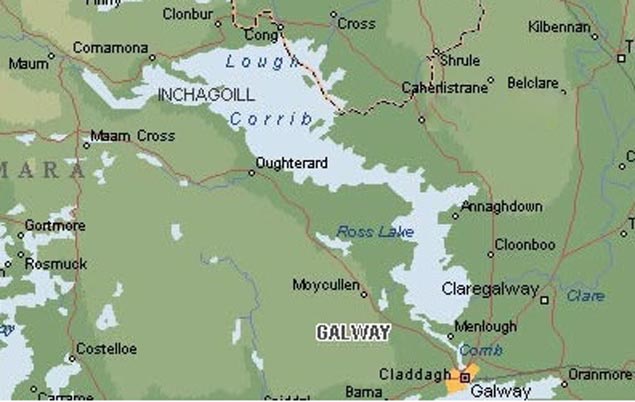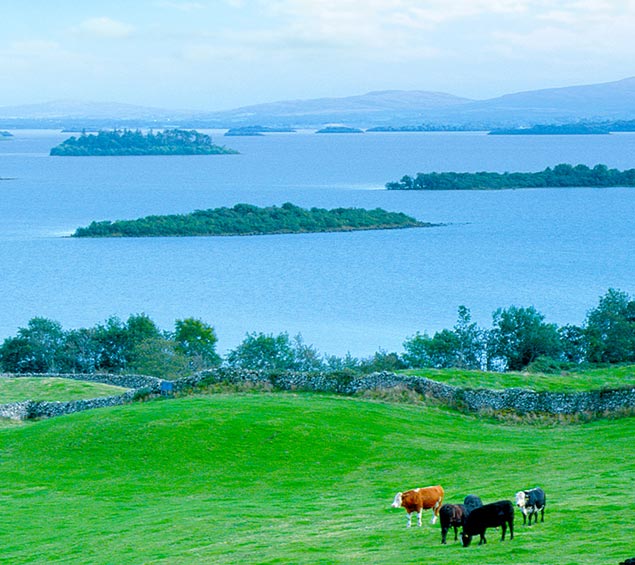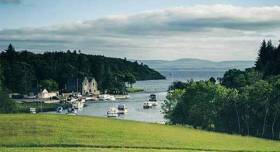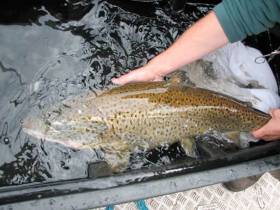Displaying items by tag: Cong River
Life was simpler back in 1882 when the sailing folk of Galway Bay and the stunningly beautiful Lough Corrib inaugurated the Galway to Cong race the length of the great lake writes W M Nixon. People didn’t have cars, and still less had they efficient road trailers. So if you raced the whole way from Galway up the lake to Cong, you then had to expect to sail back again, and you’d have covered at least 60 miles by the time the day was out, though it’s likely they made at least two days of it.
But now with modern road trailers and dinghies dominant, complex logistics enter the equation. Since its revival in 1972, the race has been just one way – southwards from Cong to Corrib Village in Galway city. In order to ensure a smooth state of affairs after the finish, competitors are offered the option of leaving their boats by road at Lisloughry beforehand, then leaving their cars and trailers at Corrib Village where a bus will be on hand early in the Saturday morning to get them back to their waiting boats in Cong.
 The basic shape of Lough Corrib indicated in this plan gives some idea of the length of Saturday’s race, but doesn’t fully reveal the lake’s island-studded nature (below) Photo: W M Nixon
The basic shape of Lough Corrib indicated in this plan gives some idea of the length of Saturday’s race, but doesn’t fully reveal the lake’s island-studded nature (below) Photo: W M Nixon Not only is the race now a convenient half size in length (though still all of 30 miles), but there’s a pit stop for lunch and conviviality at Kilbeg, more or less halfway down the lake where the expansive Corrib is at its narrowest, and there’s a pub nearby. But the very fact that your car and trailer are waiting at the south end of the lake is a real spur to completing the event
Not only is the race now a convenient half size in length (though still all of 30 miles), but there’s a pit stop for lunch and conviviality at Kilbeg, more or less halfway down the lake where the expansive Corrib is at its narrowest, and there’s a pub nearby. But the very fact that your car and trailer are waiting at the south end of the lake is a real spur to completing the event
On the other hand, with people making last-minute decisions based on the fickle weather of 2019, maybe the handiest contact is direct to organiser John Barry, Rear Commodore (Dinghies) Galway Bay SC, at 086-8111269 – he reports that entries already in range from 420s to a selection of RS dinghies, participant ages are from 15 to 85, and there’s a strong female contingent taking on the challenge.
Meanwhile, the GBSC cruisers are recovering from their Summer Solstice Cruise to the Aran Islands at the weekend, which had a dozen boats taking part. While the sail round Inishmore on Saturday enjoyed Mediterranean conditions, Sunday brought driving easterly rain and a very damp beat home - all very character-building stuff.
Two Anglers Plead Guilty To Illegal Fishing Methods On Cong River During Annual Closed Season
Two anglers recently appeared in court on charges relating to illegal fishing methods on the Cong River and fishing during the closed season.
On Thursday 23 May, Mindaugas Jenkus of Claremorris, Co Mayo and Dalius Bureninas of Birr, Co Offaly appeared in front of Judge Mary Fahy at Clifden District Court in respect of breaches of fisheries legislation on the Cong River which occurred on 9 September 2018.
Both defendants represented themselves and pleaded guilty to strokehauling (using a weighted instrument or device with a rod and line or otherwise to foul-hook fish) and fishing out of season on the Cong River.
Bureninas also pleaded guilty to a further charge of obstruction under Section 301 (7) of the Fisheries (Consolidation) Act 1959.
Fisheries officer Paul Reynolds outlined the facts of the case to the court, while assistant fisheries inspector Barry Kelly also told the court that the Cong River was a very important salmonid fishery with has a large run of Atlantic salmon and a good stock of brown trout.
It is also of particular conservation interest in relation to ferox trout, for which the river is renowned.
The Cong River is one of the main tributaries of Lough Corrib, and is one of the most important salmon rivers in the west of Ireland
Fisheries inspector Pat Gorman stated that these offences were very serious due to the conservation status of the Cong River, when asked his opinion by Judge Fahy.
The judge commented on how serious a matter these offences were and referred to Bureninas giving a false name and address when lawfully demanded. She also noted that Mr Jenkus had a recent conviction for a similar fisheries offence.
Judge Fahy stated that if both defendants paid costs of €600 each to the court at a sitting of Clifden District Court on 26 September, she may deal with the matter by way of a somewhat reduced fine.
She also warned both men to be on their best behaviour and not to come to the attention of Inland Fisheries Ireland (IFI) again as there was a risk of a custodial sentence being imposed.
“The Cong River is one of the main tributaries of Lough Corrib, is one of the most important salmon rivers in the west of Ireland and provides habitat for a very unique salmonid sub-species, ferox trout,” said IFI chief executive Dr Ciaran Byrne when commenting on the case.
“The Cong River is closed to angling during September as a conservation measure relating to both Atlantic salmon and ferox trout. The river attracts many anglers and tourists annually to fish for these unique wild salmonid species.”































































